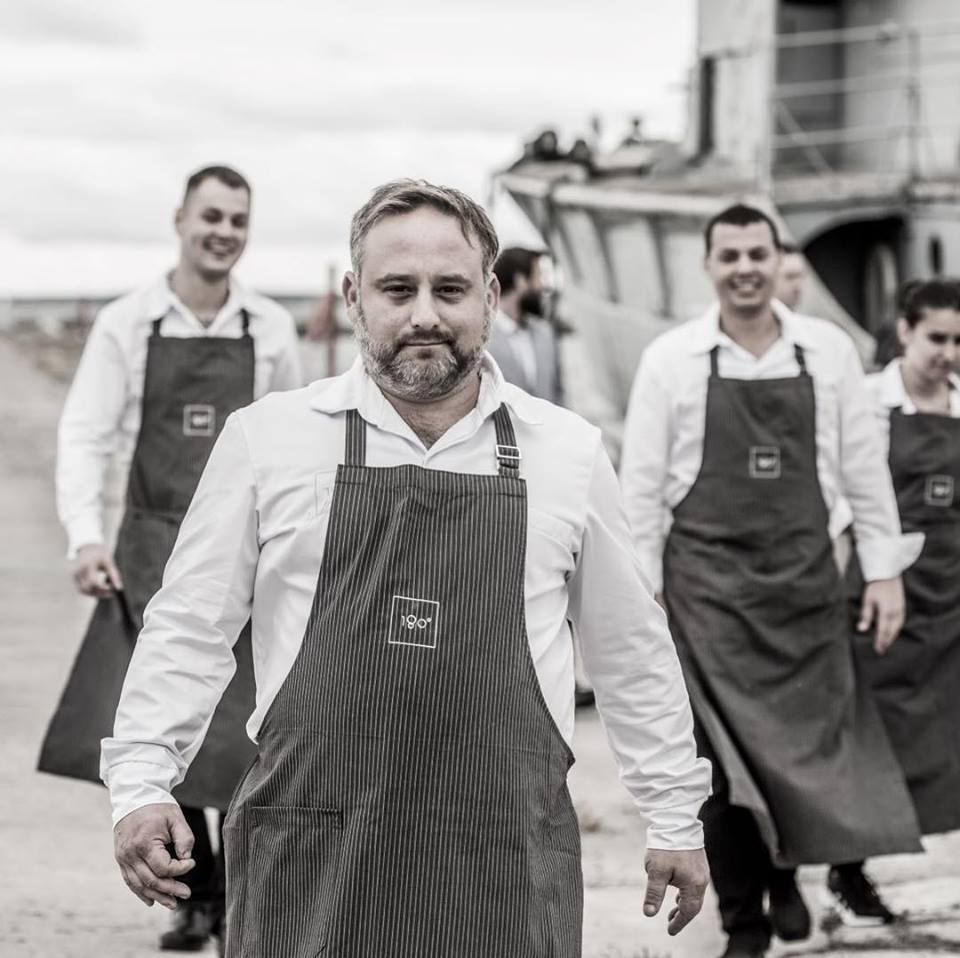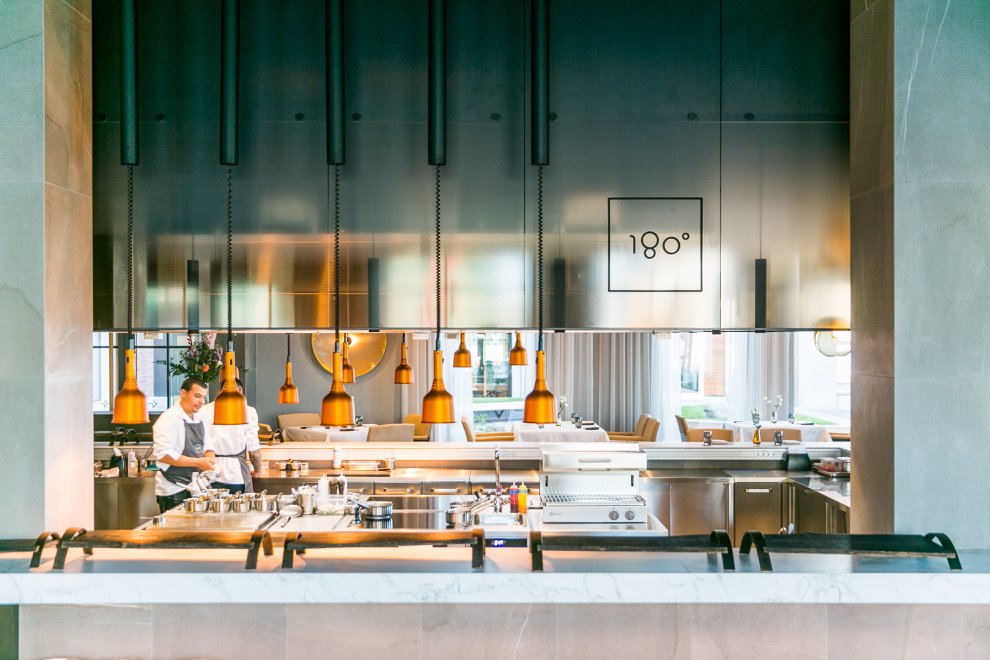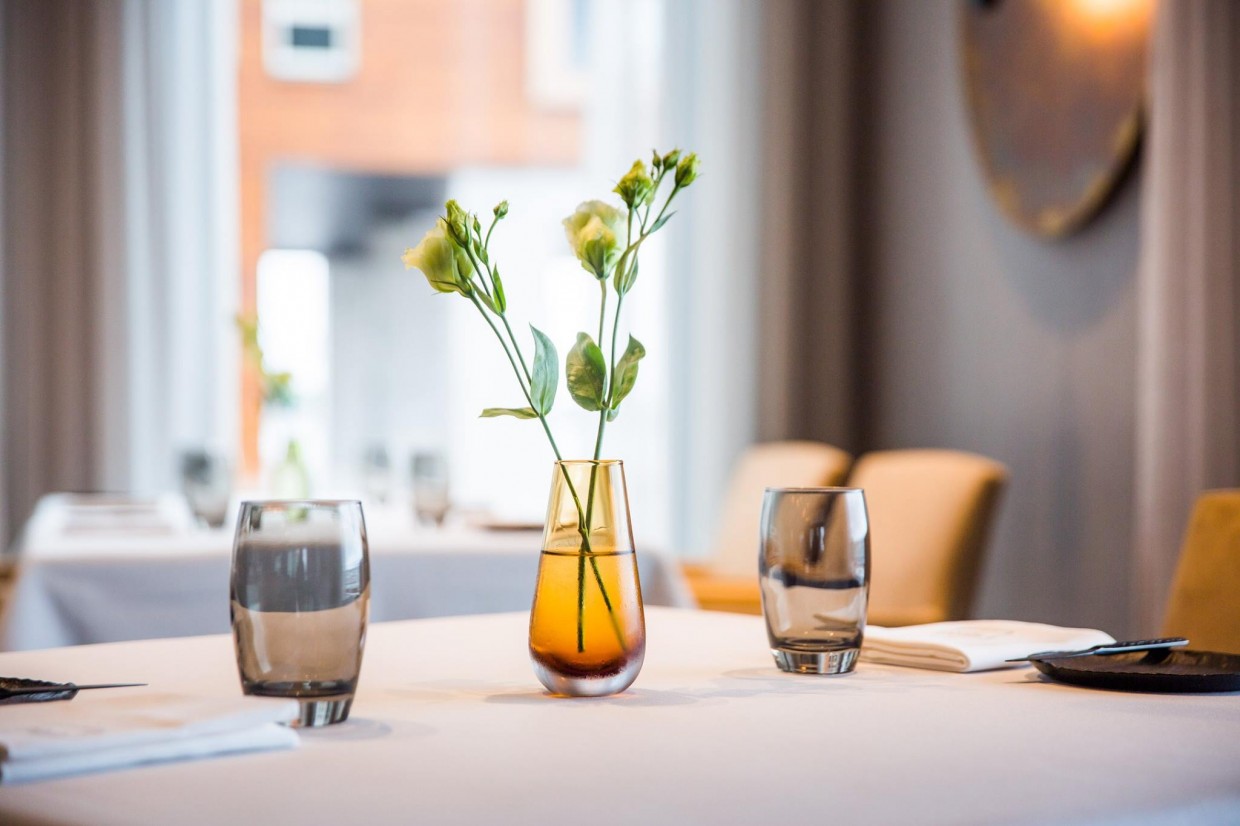5 Minutes with Matthias DietherVEEN Scene 009

Lauri Laan
Born in Berlin and raised in southern Germany, Matthias Diether found his passion for cooking, helping out at his uncle’s restaurant during weekends and school holidays. He gained his professional knowledge with the great German chefs Lothar Eiermann, Harald Wohlfahrt and Dieter Müller, and managed gourmet kitchens in Dubai for the Ritz Carlton, the Emirates Palace and the Shangri-La.
In 2010 he founded his signature restaurant First Floor in Berlin, where he was able to perfect the elegant and artistic cooking style which he is known for today. Today he is establishing his culinary home in Estonia, having worked at Pädaste manor on Muhu Island, and found inspiration in Estonia’s unique regional cuisine. VEEN Scene met Chef Diether at 180°, a fine dining restaurant located in the historical Port Noblessner in Tallinn, where Chef Diether and his team are raising the bar for haute cuisine in Estonia.
Please tell us about 180 Degrees, and what prompted you to start this fine-dining restaurant in the capital of Estonia?
180 is a restaurant build from the experience from many concepts in the past (chef’s table, lounge, and entertainment). When I was in Alexander’s Chefs table and I met my 2 other partners. Together we decided to create “180 degrees” with the concept and it was clear we should do it in the capital of Estonia.
But 180 Degrees is not your first project in Estonia. What drove you to establish your culinary home in Estonia?
I feel very well in Estonia. My roots are created by my family here, the great products and the whole development which I am a part of – working towards developing (the culinary culture) even further in Estonia.

Lauri Laan
What defines a “Food Experience” in your culinary world?
Food/dining experience I see from two sides: Firstly, to convey one of the tastes (different combinations of taste, ingredients, texture & Art in a dish); and secondly, to also give the guest an experience of entertainment and well-being.
Take us back in time and tell us how did you start your career in the culinary world?
Have started a career in a 5-star hotel during my studies, and after my 3 years of training I decided to take the fine dining path. I have since worked in the best restaurants of the world, and had a chance to acquire foreign experience, too. When I return back to Germany, even the great guides like Michelin and Gault Millau began to develop me.
Do you remember the first meal or dish that awakened your palette?
Yes!! It was a goose liver terrine with cherry combination – it was a fantastic creation.
Has any, one chef influenced your cooking style or had a major effect on your career?
Surely all of my mentors have influenced me, but they all rather differed with their cooking style! – Perhaps, discipline and perfection were the most important things learned from all my mentors.
What are the biggest misconceptions out there about (fine dining) restaurants?
I think the biggest misconception by guests is that the fine dining restaurants are too expensive, dishes too small, too conservative… But, I think new restaurant concepts in fine dining scene are fresh and exciting! At the same time, high-quality produce is not cheap, so in a way, living healthy has become a luxury in our society.

What is your favourite type of cuisine?
I like various types of Asian cuisine, oriental with a lot of flavours; as well as fish and shellfish.
Your favourite restaurant in the world?
“Juan Amador” – led by, in my opinion, one of the best Chefs in the world!
What’s the most unusual dish you’ve eaten, and is there anything you’ve refused to try?
All that is in connection with eyes or genitals… simply, don’t need it!
What role does water represent for you in the dining experience?
Water has a very important role, as it neutralizes the taste nerves on the tongue.

Considering the emerging dining destinations around the world – where should a young aspiring chef strive to be?
In my opinion, the places to be are Asia , Europe & the Middle East. However, the most important for any aspiring Chef is to learn and handle the products and ingredients.
What advice would you give to a new young chef?
“Do not complain, the quality comes from fighting.“